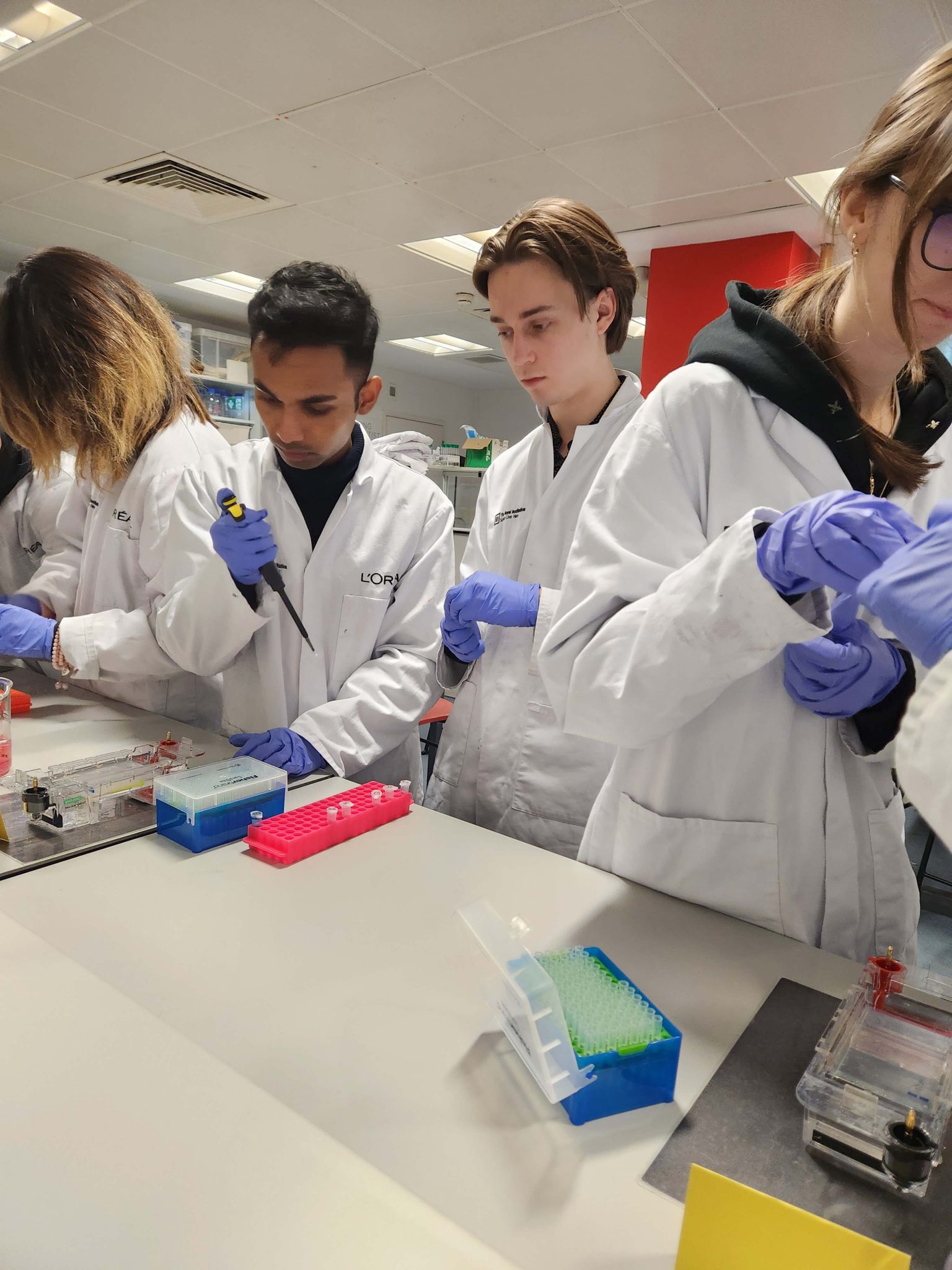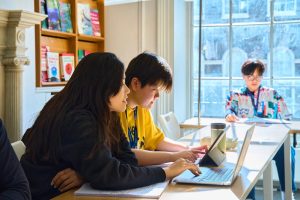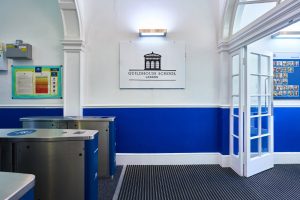In December 23 A Level Biology students from Guildhouse School London attended a forensic science workshop at The Royal Institution. Instead of a listening to a lecture with activities scattered in as many education trips are, students found themselves at a murder scene.
Even more exciting was the fact they were the forensic scientists tasked with solving the case.
Murder at The Royal Institution
In this workshop, ran by the L’Oréal Young Scientist Centre, students learned the basics behind forensic applications of DNA, and how scientists use this to solve crimes. After learning these basic principles, a crime scene was revealed. Our students suddenly had to use their freshly learnt skills as they set out to solve the gruesome murder before them.
With only four hours to crack the case, our students immersed themselves in the world of genetics and forensic science in order to catch the killer. With the clock ticking, the game was afoot…
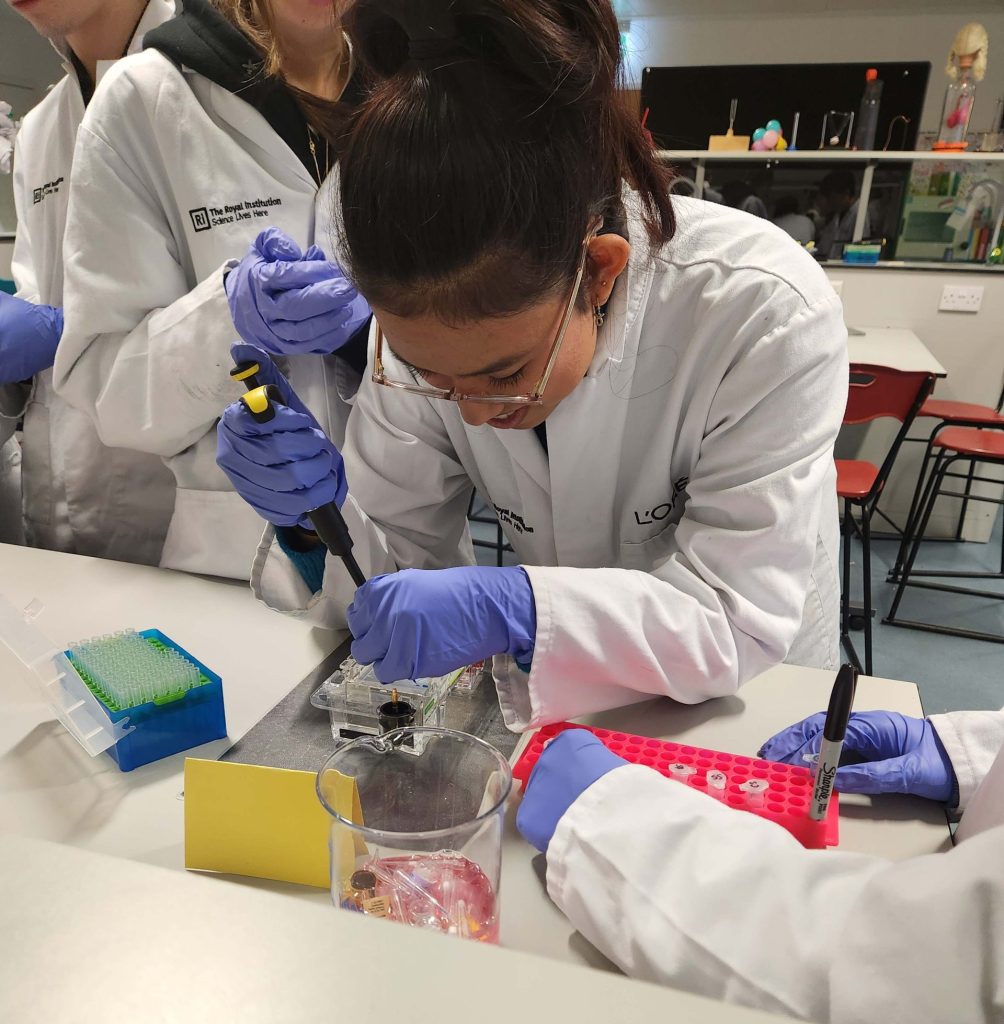
Getting to Work
The forensic workshop’s hands-on approach allowed students to apply the theoretical knowledge from their A Level Biology studies in a real-world setting. They employed skills not encountered in the curriculum too. This included a handful of advanced molecular biology techniques like restriction digests and gel electrophoresis to analyse the suspect’s DNA.
Solving a murder was perhaps the most exciting revision technique our students have used. Not only was it great for helping to embed their learning, but it also gave an inspiring glimpse into how the things our students are learning today could be applied in real world situations. It was an eye-opening day for Guildhouse School students and an experience they won’t forget.
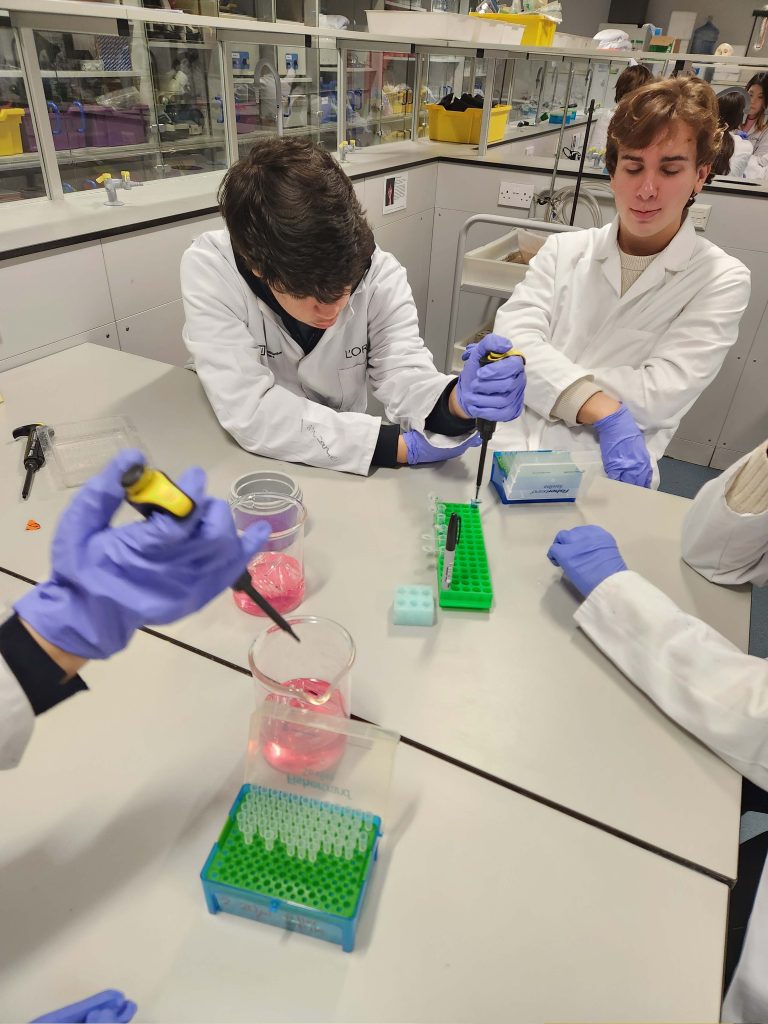
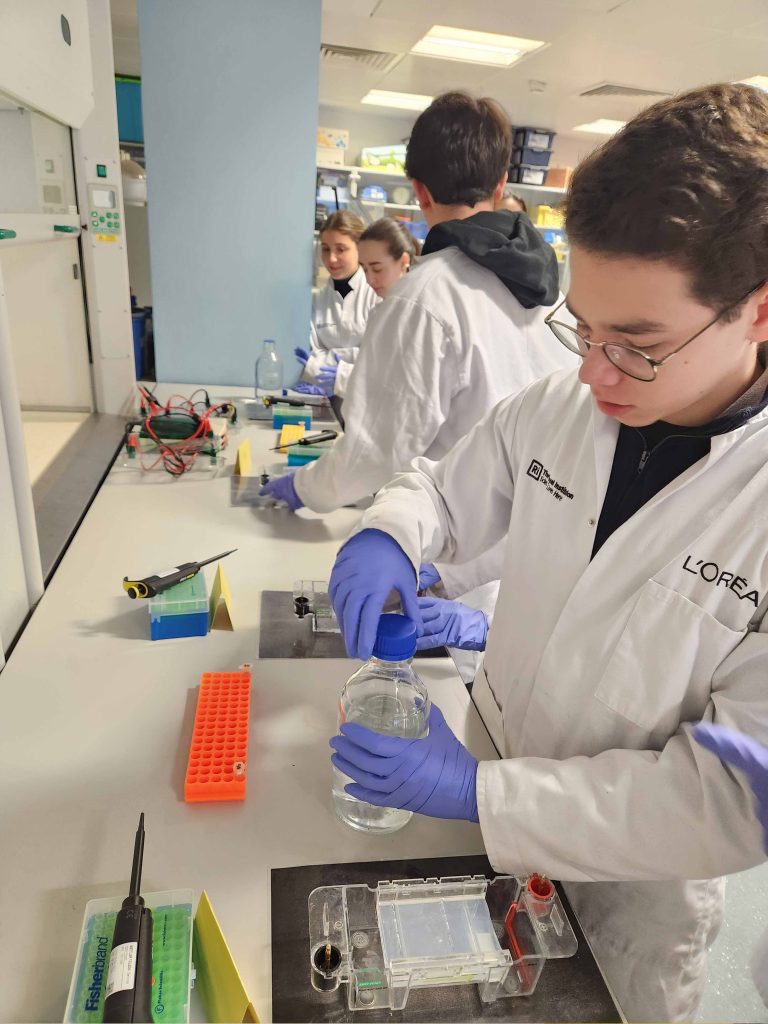
Post-Mortem
We fostered our students’ interest in the field of forensic science. In the future, some may even look towards careers in this area. Forensics is a highly competitive field of study and experiences like this one give our students and edge to their university applications.
The workshop was a resounding success, leaving a murderer behind bars and our students with a deeper understanding of genetics, a heightened interest in forensic science, and a memorable experience that complemented their academic pursuits.
